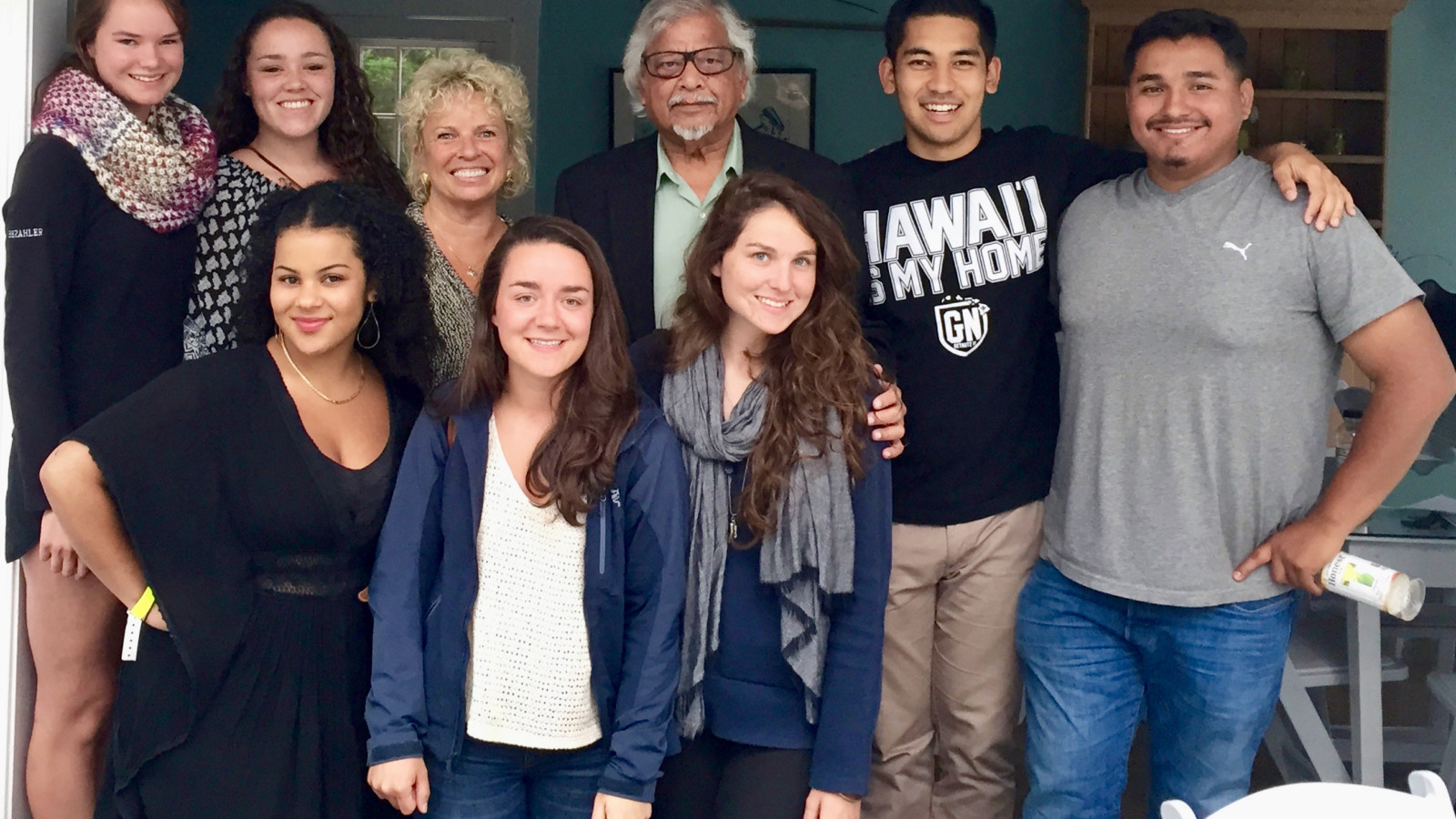This introduction is an excerpt from the book, Stone Soup for a Sustainable World: Life Changing Stories of Young Heroes.
At the Stone Soup Leadership Institute’s Celebration of Heroes with Walter Cronkite in 2002, we pledged to carry on the legacy of Mahatma Gandhi, Eleanor Roosevelt, Cesar Chavez and Dr. Martin Luther King Jr. to improve the conditions of our neighborhoods, our countries and the world through individual action and working with others. Together, we have forged new directions for the global economy, bridge the gap between the haves and have nots and strive to build a more peaceful world. This Pledge is woven into all the Institute’s educational tools, trainings, and youth leadership initiatives. Our young people read it aloud at our Sustainability Summits to honor their legacy. One of the Institute’s hallmarks is connecting young people with their elders. They learn to build bridges, cross-fertilize intergenerational ideas, and stand on their shoulders—and in the process, they reenergize the elders with the creative, enthusiastic energy that young people exude.
I’m honored that this chapter features the grandchildren of Mahatma Gandhi, the civil rights leader Cesar Chavez, the media mogul and philanthropist Ted Turner, and Sri Lanka’s Dr. A.T. Ariyaratne, as well as the children of Robert F. Kennedy, Frances Moore Lappé, and David Suzuki.
Arun Gandhi faced racial prejudice growing up in South Africa. When he was 12, seeing the understandable anger that was building in him, his parents sent him to live in India with his grandfather, Mahatma Gandhi, to learn the principles of nonviolence, and put him on a better path. Long before the technology was ready, Cesar Chavez wanted to create a network of radio stations for his people, to keep them connected with up-to-date news. Today as director of digital strategy at Radio Campesino, Cesar Chavez continues to carry out his grandfather’s dream. “We’ve become a useful tool for the whole community to better themselves, to keep the UFW struggle going, and to keep my grandfather’s legacy alive,” he says.
Niven Ganegama and his sister Tiara grew up admiring their grandfather, Dr. Ari Ariyatne, founder of Sri Lanka’s Sarvodaya movement, a humanitarian organization whose work is known throughout the world. When they were teenagers, Niven and Tiara decided they wanted to carry on Dr. Ari’s tradition of service to others by helping kids in remote rural villages learn English. “Awakening, caring for others, sharing our gifts” is his grandfather’s message, says Niven. It is a legacy they are carrying on.
Kerry Kennedy was only eight years old when her father, Robert F. Kennedy, was assassinated. But she had already learned some very important lessons from him; perhaps the most important was that each and every person can make a difference. Hafsat Abiola’s parents instilled in her the importance of sharing, and of helping others. Her father, who became the first democratically elected president of Nigeria, empowered people by helping them buy farms, start small businesses, and receive an education. Her mother taught her that simple things told a lot about a person’s character. Today as president of Women in Africa, Hafsat is developing initiatives to help women respond to the challenges and dangers of COVID-19.
Growing up, John R. Seydel loved the cartoon series Captain Planet, which was cocreated by his grandfather, Ted Turner. At the end of every episode, there was a Planeteer Alert, where a diverse team of global heroes would talk directly to the audience about ways to find solutions to the environmental problems in their communities. “It taught us how to be part of the solution, not part of the problem—and to inspire others along the way,” he says. John R. is carrying on this legacy through serving on the boards of a variety of Turner family foundations, including the Captain Planet Foundation.
Demi Weitz imagined a very different kind of 17th birthday than what it turned out to be. When the COVID pandemic got in the way of her party plans, her father organized a Zoom party for her, with some of his recording artist friends. This gave Demi an idea: why not organize Zoom concerts to benefit charities? That’s how Quarantunes, an amazing success story, began. They’ve since raised more than $20 million for charities.
These stories reveal the wonderful gifts that parents can pass on to their children, as well as the gifts their children can in turn send into the world at large. At the Institute we seek to provide additional opportunities to nurture this rich cultivation of intergenerational legacy, to make a better world for tomorrow’s children.


